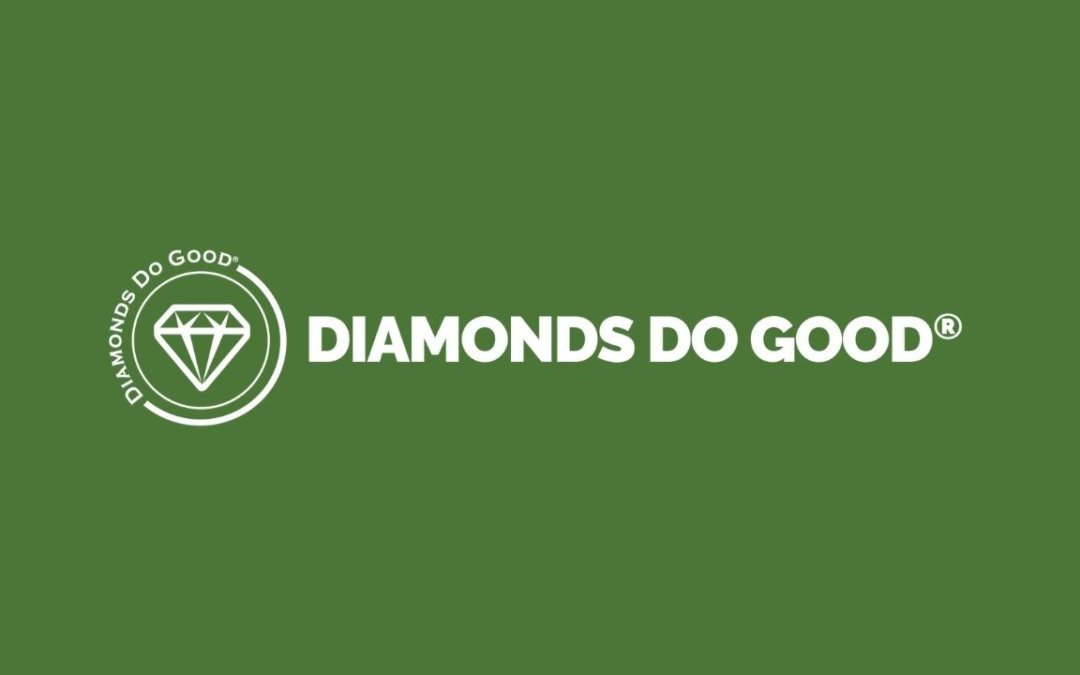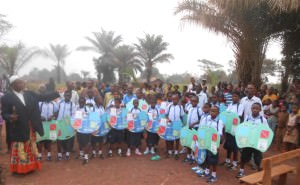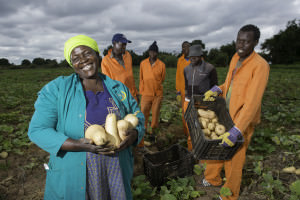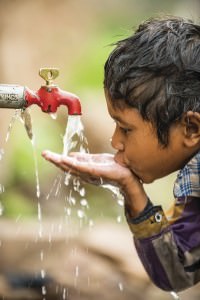An Open Letter in Response to TIME Magazine’s September 7, 2015 Article
“Diamonds Do Good”
by
The Diamond Empowerment Fund
The Diamond Empowerment Fund (D.E.F.) is a global non-profit organization founded by and funded by the diamond industry to support education and other transformative initiatives in diamond communities around the world. During most of the past decade, we have witnessed first-hand how the diamond industry in Africa, India, China, United States, Canada, Australia and in other places in the world have contributed significantly to improving the quality of life of millions of people whose livelihood and work are connected to the diamond industry.
We were, therefore, especially concerned about the recently published article in TIME magazine written by Aryn Baker. While the article focused mainly on issues surrounding the Kimberley Process and alluvial mining conditions in the Democratic Republic of the Congo (DRC) and Central Africa Republic (CAR), the headlines and overall content of TIME’s piece overshadowed and in some cases minimized the tremendous good that the industry does in Africa and other continents as part of its global commitment to responsible sourcing, sustainable economic development, and productive social transformation.
The fact that TIME is a well-respected international publication is another reason why we feel obligated to respond. Are there serious problems that surround alluvial mining in the DRC and CAF? The answer is yes. But the truth is that the diamond industry itself is making progress toward helping to resolve these problems working in partnership with governments, the United Nations and civil society groups together with corporate and nonprofit organizations.
We note that Ms. Baker’s coverage did reference in part some of the positive impact that industry-related programs are currently having that help individuals working and living in alluvial mining communities. Indeed, the Diamond Empowerment Fund is a proud supporter of another one of the Diamond Development Initiative’s mobile schools as mentioned as highlighted in the TIME’s article.
D.E.F.’s particular school is located in the Kankala mining community of the Kasaï Occidentale province in the DRC. The mobile schools in the DRC consist of traveling teachers and portable materials that are brought to alluvial mining communities located in remote locations of the DRC where children, particularly girls, would not otherwise have full access to education.
Given the importance of diamonds to the many communities around the world where diamonds are mined and/or where the industry does business, we felt it was important to give a broader context to some of the difficult conditions found in alluvial mining and to reinforce the many positive programs embraced by the industry every day.
While only 15% of diamonds in the world are mined alluvially, alluvial mining accounts for a majority of the challenges the industry faces. Diamonds are a crystalline form of carbon. They were formed in the earth’s upper mantle, below the crust, millions of years ago, when high temperatures and pressures caused carbon intrusions to crystallize into diamonds. These diamonds were then brought towards the earth’s surface via kimberlite pipes that were created through upward volcanic activity.
“Alluvial diamond” is the term used to describe a diamond that has been removed from kimberlite by natural erosive action over millions of years and deposited in areas such as riverbeds. These deposits are spread across huge geographic areas that cannot be easily isolated, and are therefore often mined informally and in a non-regulated way.
In many cases the mine workers have no other option for employment and support a whole family on the wage given. The situation alluvial miners face today reflects the fundamental challenges of diamond mining in a previously war-torn country like the DRC, where extreme poverty and a lack of basic infrastructure, education and healthcare pose major issues.
Organizations like Diamond Development Initiative are working to help regulate this type of mining and find sustainable methods of ensuring that diamonds are mined and distributed for the ultimate benefit of these local communities and governments. The DRC is home to 71 million Congolese, with a median age of seventeen years, of which 71% are currently living below the poverty line.
With the vast wealth of materials found in the Congo, the country is poised to become one of the leading emerging economies in Africa given good governance and sustainable policies. Together with the government of the DRC and the many international development groups on the ground in the country, the growth of alternative industries to mining will help create a more competitive job market where the average salary will advance beyond current wages.
While alluvial mining poses many challenges, as detailed in the TIME piece, the reality is that the vast majority of diamonds (over 75%) are mined in the Southern African countries of Botswana, Angola, South Africa, and Namibia; as well as in Australia, Canada, and Russia, in formal large- scale mining operations where responsible business practices have been put in place for the workers. These practices include building and supporting communities around many of the mines where families can thrive with schools, infrastructure, hospitals and access to healthcare.
Founding member of the Diamond Empowerment Fund, miner De Beers, has long been in the forefront of active engagement with the communities around their mines. Take for example the story of Mercy Sithagu.
Mercy Sithagu is a 51-year old woman who owns Sithagu Farm, a business she founded with her sister in the tiny village of Nwanedi in South Africa’s Limpopo Province. With the aid of grants
and mentorship from De Beers’ Zimele Program, which provides loans to advance small businesses, Mercy’s farm grew to be so successful she was named ‘Female Farmer of the Year’ in 2012. The Zimele Program, named for the Nguni word that means to “stand on your own feet,” is part of De Beers’ commitment to building a prosperous South Africa by empowering local communities.
Rio Tinto is another key diamond industry player and member of D.E.F. Board of Directors committed to giving back to the communities in which it does business. In the Bundelkhand region of Madya Pradesh, 311 miles southeast of Delhi, India’s capital, villagers used to walk half a mile several times a day to collect water for cooking, bathing and other domestic uses. As part of miner—and D.E.F. supporter—Rio Tinto’s emphasis on sustainable development around their new Bunder mining project, the company worked in tandem with the villagers to install solar powered water pumps to enable easy access to fresh, clean water. Now the villagers have more time to pursue schooling, work, sustainable farming and other interests
We at the Diamond Empowerment Fund are committed to sharing these good stories of giving back, direct results of the diamond industry’s commitment to the areas in which it operates. We are also just as committed to supporting education initiatives in these same diamond mining communities. Growing up poor in Gaborone, Botswana’s capital, Patience Osei’s desire to study biomedical engineering was fueled by almost losing her mother to asthma. “They just didn’t have the equipment in the hospital that could help her” says Osei. Now a graduate student at Johns Hopkins University, Osei looks forward to the day she returns to Botswana to create cutting edge medical devices that could help asthma sufferers like her mother. The Top Achievers Program run by Botswana’s Ministry of Education, which the Diamond Empowerment Fund (D.E.F.) supports with direct funding, funded Osei’s education.

Patience Osei, far left, at her graduation from Bucknell University, which she attended before heading to Johns Hopkins.
These are just a few of many of the ongoing good works being done by the diamond industry. Our intention is to shed light on these good stories; while also acknowledging that we have steps to take in terms of industry regulation and the protection of diamond laborers. We only wish to contribute to a more well rounded perspective on the issues faced in diamond communities.
The above living stories and the many other examples of how ‘Diamonds Do Good’ can be accessed on DiamondsDoGood.com. For more information on the Diamond Empowerment Fund, please go to diamondempowerment.org. For more on the Diamond Development Initiative, please go to ddiglobal.org. All of us working together within the industry continues to bring about lasting productive changes, even in the face of challenges: one nation, community, family, and person…one diamond at a time.
Sincerely yours,
The Diamond Empowerment Fund
Phyllis Bergman | President of the Board CEO, Mercury Ring
Nancy Orem Lyman | V.P., Executive Director
Dr. Benjamin F. Chavis | Co-Founder, Senior Strategic Advisor




